- Home
- Mack Maloney
Strike Force Delta
Strike Force Delta Read online
SMILE, YOU’RE ON CANDID CAMERA. . . .
Amid the gunfire and growing racket, someone else screamed: “It’s coming back!”
An instant later, the huge airplane roared over once again, this time even lower and trailing even more of an ear-splitting noise behind it. Everyone could see it this time. It was big and black. And yes, they all saw the cameras this time too. Not only a huge lens in a bubble located on the belly of the plane, but people in black uniforms were aboard the plane, hanging out open windows, taking pictures with hand cameras!
The Chief started screaming at his men again to shoot at the airplane. But it was already too late. The plane was gone, heading back from where it came, the mountains to the north.
Suddenly everything was quiet again. People were just standing around, dazed, in shock. Nothing like this had ever happened in Khrash before. Even though they were Al Qaeda, they were protected here. Or at least they thought they were.
And as the Chief and Saheeb the Syrian watched in horror, Jabal finally lost it.
“Allah, have mercy on my soul,” the terrorist gasped. “The Crazy Americans . . . They are coming to get me!”
“Maloney’s page-turning plots are what everyone would like to see in real life: direct, decisive action against the Al Qaeda killers, without ceremony or pretense. Maloney has his finger on the pulse of the nation. As he sends his Superhawk heroes into the global fight against terrorism, his grasp of modern technical detail combines with the most authentic presentation of terrorist forces, making this the top action series in the market place.”
—Walter Boyne, author of Operation Iraqi Freedom:
What Went Right, What Went Wrong, and Why
“Mack Maloney has created a team of realistic characters that pulse with patriotic fervor . . . Maloney hasn’t just crafted a great war story, he has set a new standard for action-packed thrillers.”
—Robert Doherty, bestselling author of AREA 51 series
St. Martin’s Paperbacks Titles
by Mack Maloney
Superhawks: Strike Force Alpha
Superhawks: Strike Force Bravo
Superhawks: Strike Force Charlie
SUPERHAWKS
STRIKE FORCE DELTA
Mack Maloney
NOTE: If you purchased this book without a cover you should be aware that this book is stolen property. It was reported as “unsold and destroyed” to the publisher, and neither the author nor the publisher has received any payment for this “stripped book.”
SUPERHAWKS: STRIKE FORCE DELTA
Copyright © 2005 by Mack Maloney.
All rights reserved. No part of this book may be used or reproduced in any manner whatsoever without written permission except in the case of brief quotations embodied in critical articles or reviews. For information address St. Martin’s Press, 175 Fifth Avenue, New York, NY 10010.
ISBN: 0-312-93822-5
EAN: 9780312-93822-2
Printed in the United States of America
St. Martin’s Paperbacks edition / December 2005
St. Martin’s Paperbacks are published by St. Martin’s Press, 175 Fifth Avenue, New York, NY 10010.
10 9 8 7 6 5 4 3 2 1
PART ONE
Saving Thunder
Chapter 1
There was enough plutonium in the suitcase to blow up half of West Africa.
The suitcase was locked in the trunk of the old battered Land Rover, wrapped in lead blankets and ducttaped over and over, more than a hundred times. At the moment, it was leaking only a small amount of radiation.
Six men were riding in the Land Rover. They were all carrying AK-47 assault rifles and machetes. They were members of the Angolan Popular Front, hardened veterans of insurgency and jungle warfare fought over the past few decades against a variety of enemies, including the armed forces of South Africa.
There was another Land Rover driving in front of this one. It was painted white with huge red crosses on its hood and doors—but this vehicle had nothing to do with the International Red Cross. It, too, was filled with armed men. They were mercenaries, many of them ex-members of the British SAS.
The third vehicle in this strange parade was a doubly armored Humvee. Eight men were jammed inside this tanklike truck. They were members of Delta Force, America’s premier Special Forces team. They were the most heavily armed group of the three.
It was midnight. It was raining hard. The three vehicles were speeding along a muddy winding mountain road very close to the border of Nigeria and Cameroon.
The three disparate groups were not compadres—far from it. They were three parts of an exchange team. The plutonium, partially enriched and near weapons grade, was being swapped for 16 pounds of uncut diamonds worth $70 million. Russian-made and in the possession of the Angolans via a very circuitous route, the nuclear material would be disposed of at sea once the insurgents were paid. The diamonds were being provided by Central Bank of Paris; the United Nations had purchased them via a secret bank account. The British mercs had arranged the transaction; they were in for 10 percent. The muscle, needed as insurance that the deal actually got done, was being provided by Delta Force.
The plan was simple, this after months of intense negotiations. The plutonium and its caretakers would drive to a point just over the border into Nigeria where officials from the United Nations’ Non-Proliferation Group would be waiting. They had the diamonds, plus bags full of cash. The Brits would be paid their $7 million, then sent on their way. The plutonium would be surrendered to the UN group and the diamonds would be handed over. Then the Angolans, too, would be allowed to disappear.
From there the material would be taken aboard a French Army helicopter for its trip two hundred miles out to sea to be dropped to its watery grave. The UN group would then combine with the Delta escort and together they would drive to the port city of Oran, where a U.S. Navy cruiser was waiting offshore to take them aboard.
The three vehicles were right on schedule, crossing into Nigeria just a few minutes after midnight. The meeting point was at a border station next to the Okewa Bridge, a place conveniently abandoned by Nigerian troops for the evening. The tiny convoy pulled up to find the UN group already there. Four men wearing blue windbreakers with the letters UN emblazoned on the back were waiting on the porch of a tiny cement block building. They had a strongbox containing the diamonds; they also had the $7 million in cash for the mercs. A French Army Alouette copter was parked nearby, its rotors spinning, its crew looking out on the proceedings anxiously.
The rain had stopped by now and the full moon was coating everything in a pale silver light. Some passwords were successfully exchanged, shouted over the rumbling of the copter’s engines, this as the plainclothes Delta soldiers set up a defense line in front of the border station. The mercs got their payoff first. Ripping the fake Red Cross symbols from their truck, they promptly left, driving back across the bridge and into Cameroon. The Angolans then took the lead suitcase from their trunk and, ever on guard, walked it over to the UN group.
One of the UN representatives was a nuclear physicist. He tore open the duct tape, cut away one layer of the lead blankets, and then took a long, noisy sniff of the suitcase. Like a connoisseur testing his favorite Bordeaux, he gave a dramatic thumbs-up. The Angolan fighters relaxed. The diamonds’ strongbox was turned over to them; they jumped back in their Land Rover and were quickly across the border, too. The UN scientists then put the suitcase aboard the helicopter, and with little ceremony, the aircraft prepared to take off.
That’s when the Al Qaeda fighters showed up.
They came out of the jungle directly behind the helicopter, dressed in black and carrying German assault rifles. Using the copter as cover, they’d been lying in wa
it, hidden under mats made of flora, sticks, and branches. The first thing they did was brutally gun down the four members of the UN team, shooting each man many times in the head. Then they shot out the engines of the two remaining vehicles, rendering them inoperable. All this happened in a matter of seconds.
A firefight instantly broke out between the Delta soldiers and the Muslim fighters. Their backs to the Okewa River, the Americans pushed their disabled Humvee over on its side and took up firing positions behind it. Though they were heavily armed, it was clear from the start the Delta crew was vastly outnumbered, as more than three dozen Muslim fighters had emerged from the jungle.
Nevertheless, the Americans began spraying the terrorists with M-60 machine-gun fire, grenade launchers, and M16s. Two of the Delta guys were armed with enormous Mossberg shotguns; each time their triggers were pulled the night would light up as bright as day. But by this illumination the Americans could see even more Muslim fighters materializing from the forest. The Americans were mowing them down in the most methodical fashion, but like a horror movie, every time a terrorist went down, two more would take his place. Soon their bodies were piling up in front of the overturned Humvee like cordwood.
The terrorists’ strategy was clear. These guys weren’t really assault soldiers, nor were they Al Qaeda’s version of a special ops team. They were just suicidal mooks with guns, fodder, to be cut down for one reason only: to cause the Americans to run out of ammunition by shooting at them.
It was a steep cliff down to the river; there was no way the Americans could go that way safely. They were cut off from the bridge and were too far from the thick jungle to make a strategic retreat into the overgrowth.
In other words, they were trapped.
The eight men took down more than 50 of the raiders—but finally ran out of ammunition. A vicious close-quarters fight ensued with knives and bayonets, but again the sheer numbers overwhelmed the Americans and soon they had no choice but to give up. Curiously, the terrorists did not kill them—in fact, they took great pains not to kill the Americans. They were the prize, not the plutonium. All eight were quickly taken prisoner.
While all this was going on, the crew of the French Army copter simply watched, offering no help even though their aircraft was heavily armed.
The Americans had their hands tied with electrical wire and were led off into jungle.
Only then did the French military helicopter take off and slowly fly away.
Chapter 2
Somewhere outside Las Vegas
One week later
It was called the Extraterrestrial Highway.
It ran for miles into the Nevada desert, north of Las Vegas, up toward the mysterious towns of Tonopah and Rachael—mysterious because they were relatively close to Groom Lake, the top-secret U.S. military base also known as Area 51.
There was a stretch of this lonely roadway known as the Straight Snake. It ran for nearly 40 miles with barely a curve. At night, cars could be seen pulled over to the side of this road, their occupants looking up into the sky, hoping to spot a UFO or a top-secret U.S. military airplane. Sometimes they saw both.
It was late afternoon now, and a very earthly activity was taking place. Twelve men wearing sun-bright orange jumpsuits and armed with extremely sharp sticks were picking up litter along the road. They were prisoners, inmates of the Las Vegas County Jail performing community service for the state.
The trash along the highway was a predictable mix of beer cans, soda bottles, condoms, and fast-food wrappers. A stretch van had carried the prisoners here; most were awaiting the outcomes of their trials or trying to raise bail. Four county deputies sat inside the air-conditioned vehicle, watching their charges in comfort, protected from the 100-plus-degree temperatures outside.
The dozen prisoners went about their duty slowly, trying to stay as cool as possible in the stifling dry heat. At some point a plain Ford four-door sedan came ambling along, smoke pouring out from under its hood. It rolled to a stop across from where the deputies’ van was parked, the only other vehicle on the straight-as-hell stretch of highway.
At just about the same moment, the air around the prisoners and the deputies began to shake. It was a strange sensation. The sky was clear; visibility was 100 percent—yet it seemed like everything around them was moving. Everything except the ground below.
This was not an earthquake.
It was something else. . . .
All work picking up litter stopped. The deputies shut off the AC unit, thinking it was the source of the strange vibration. But it wasn’t. The shaking only increased. It was now rocking the van violently from side to side.
Then just as suddenly, the sun seemed to blink out. A shadow fell across the prisoners, the deputies’ van, and the disabled car. That’s when everyone just looked up. What they saw at first appeared like a huge bird of prey coming down at them. In the next instant, it looked more like one of the alien spacecraft the highway was famous for. In the moment after that, these two visions combined to make something else: a very top-secret aircraft. It was called a V-32CX Super-Osprey. An aircraft the size of a small airliner, with the ability to land vertically, it was all black and sinister looking. An almost-ghostly beautiful Asian woman could be seen peering down from the aircraft’s open side door.
Five of the prisoners looked up at the bizarre aircraft and immediately threw down their litter pickers. One of them yelled over the commotion: “Our ride is here!”
They began running across the desert toward the strange aircraft, which was now landing about one hundred feet away. The deputies were stunned—so were the other prisoners. They couldn’t fathom what was happening. It took the lawmen a few precious seconds to get their asses in gear, and by that time it was too late to stop the fleeing prisoners. The deputies burst out of the van, but all they could do was restrain the rest of the litter crew from running out to the strange aircraft as well.
One deputy finally got on his radio—but that’s when the two passengers from the disabled car suddenly appeared in their midst. They were not simple civilians, now that the deputies had their first good look at them. They were large individuals, muscular, tight jawed, with piercing eyes, casually dressed. Government types—the deputies could tell.
One of the two men fanned out a wad of cash. Thousand-dollar bills. Twenty of them. He passed half the bills to the four deputies, while his comrade passed the rest to the prisoners, this as the strange aircraft, having taken in the five prisoners, left quickly, going straight up, turning, then disappearing at astonishing speed over the eastern horizon.
“Government business,” one of the men said to the deputies calmly. “No one here saw a thing.”
The strange aircraft flew into the night, heading east, in radio silence, its cross section showing up on radar screens below as nothing more than a bird, if at all.
It was refueled in flight twice, once over Colorado, again over Illinois, both times by Air Force KC-10 Extenders. The weather grew worse as it flew on, first rain and then thick fog. By the time it reached the East Coast, nothing else was flying. Big or small, every airport along the Atlantic seaboard was socked in.
The aircraft’s destination was a very isolated cliff located several hundred feet above the ocean, surrounded by nothing but beach and thick forests. The nearest road, the nearest house, the nearest living soul to this place were many miles away.
There was a single airstrip up here. On one side of this runway were five huge aircraft hangars, all in severe disrepair and abandoned long ago. On the other side were the cliff and then the sea beyond. This place was once a bustling Coast Guard air station; in years past large maritime patrol craft would land here to be serviced. But the base had been decommissioned for nearly two decades, and the weeds and the corrosive salt air had overtaken it since.
It was at this desolate location, appropriately called Cape Lonely, that the futuristic aircraft finally landed.
There was a one-man welcoming committee on hand
waiting for it.
He was Eddie Finch. An ex–Coast Guard NCO now in his sixties, he’d been assigned to Cape Lonely Air Station during his active career. Now he was like a ghost here, still haunting what might very well be a haunted place.
He was out on the runway pulling weeds when the strange aircraft arrived. He’d been told, by a close friend, that the airstrip, little used in the past decade, would be needed tonight, that a single aircraft would be coming in to land.
Like those before him, Finch felt the strange airplane’s arrival before he heard it, then heard it before he saw it. The air around him started moving; his ears started ringing. Then the most god-awful-looking thing came straight down, out of the thick fog, landing like something from outer space. It took Finch a moment, but then he knew exactly what it was and who it was carrying. But still he was upset.
“If I knew it could land like that,” he grumbled, “I wouldn’t have been out here all night, pulling these damn weeds.”
The weird airplane never turned off its engines. Its side door opened and the five men in orange prisoner suits tumbled out.
They greeted Finch warmly. He looked like a thin Santa Claus and was a grandfatherly type. The five men held great respect for him. They crowded around him.
“How much time do we have?” one of them asked the elderly man. “Enough for a cup of coffee?”
The old man just shook his head. “Not this time. You’re moving again right away.”
He motioned over to the edge of the cliff. A smile came to his wrinkled snow-bearded face.
“Want to see something?” he asked them.
At that, the thick fog miraculously parted—suddenly they could see beyond the edge of the cliff to the coastline and the ocean below. Floating about five hundred feet offshore was an extremely rusty containership.

 Strike Force Bravo s-2
Strike Force Bravo s-2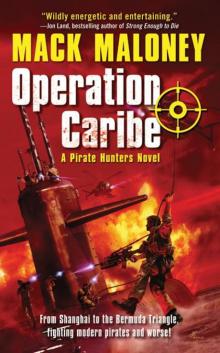 Operation Caribe ph-2
Operation Caribe ph-2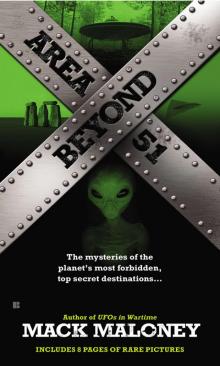 Beyond Area 51
Beyond Area 51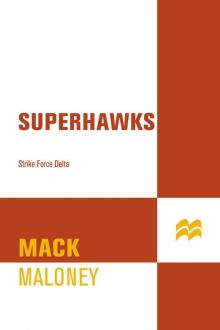 Strike Force Delta
Strike Force Delta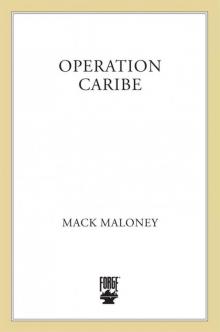 B00447820A EBOK
B00447820A EBOK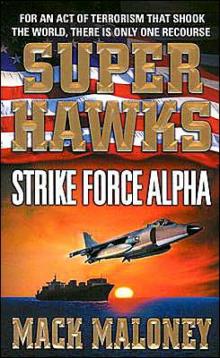 Strike Force Alpha
Strike Force Alpha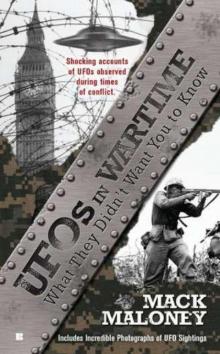 UFOs in Wartime: What They Didn't Want You To Know
UFOs in Wartime: What They Didn't Want You To Know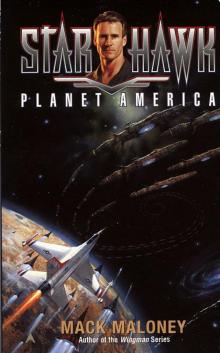 Planet America s-2
Planet America s-2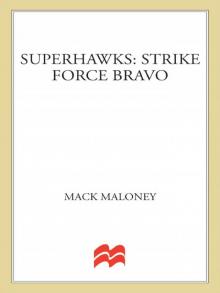 Strike Force Bravo
Strike Force Bravo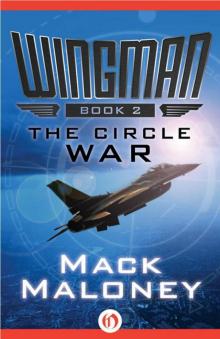 The Circle War w-2
The Circle War w-2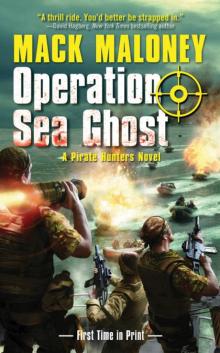 Operation Sea Ghost ph-3
Operation Sea Ghost ph-3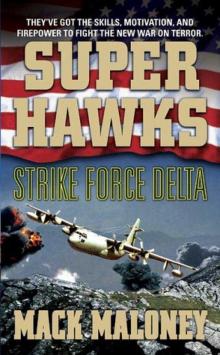 Strike Force Delta s-4
Strike Force Delta s-4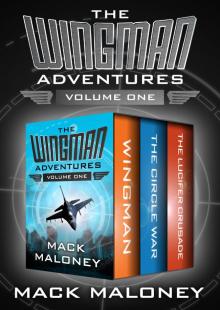 The Wingman Adventures Volume One
The Wingman Adventures Volume One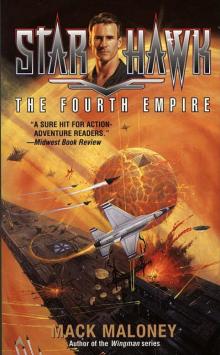 The Fourth Empire s-3
The Fourth Empire s-3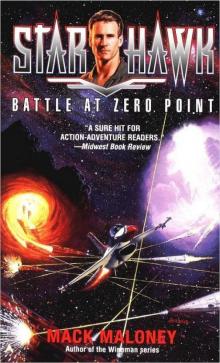 Battle at Zero Point s-4
Battle at Zero Point s-4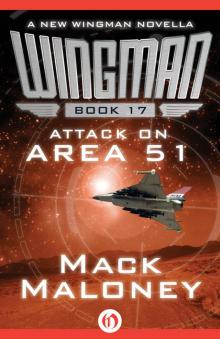 Attack on Area 51
Attack on Area 51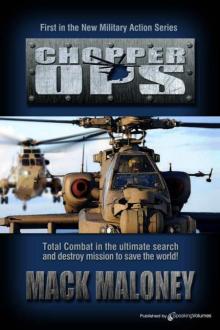 Chopper Ops
Chopper Ops B003IKHEWG EBOK
B003IKHEWG EBOK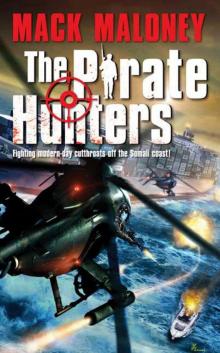 The Pirate Hunters ph-1
The Pirate Hunters ph-1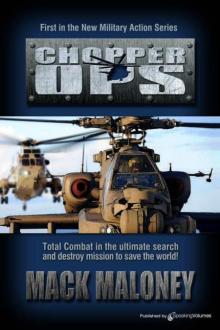 Chopper Ops co-1
Chopper Ops co-1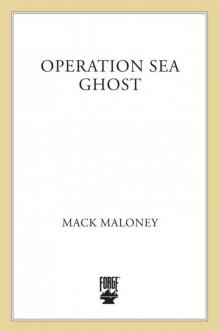 B005J4EW5G EBOK
B005J4EW5G EBOK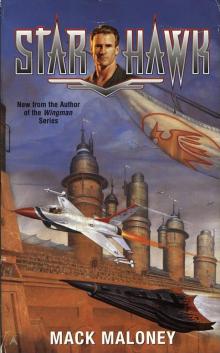 Starhawk s-1
Starhawk s-1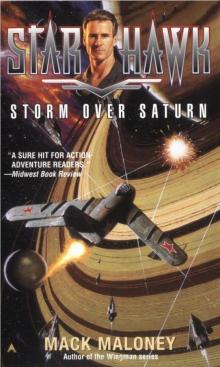 Storm Over Saturn s-5
Storm Over Saturn s-5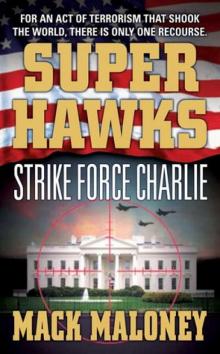 Strike Force Charlie s-3
Strike Force Charlie s-3